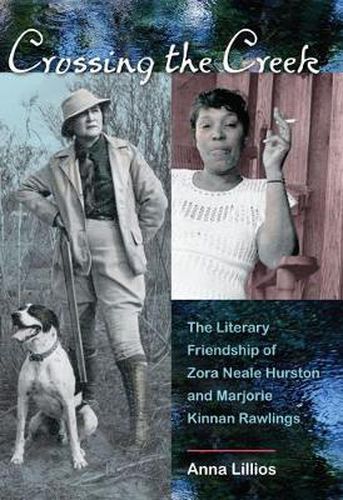Readings Newsletter
Become a Readings Member to make your shopping experience even easier.
Sign in or sign up for free!
You’re not far away from qualifying for FREE standard shipping within Australia
You’ve qualified for FREE standard shipping within Australia
The cart is loading…






This title is printed to order. This book may have been self-published. If so, we cannot guarantee the quality of the content. In the main most books will have gone through the editing process however some may not. We therefore suggest that you be aware of this before ordering this book. If in doubt check either the author or publisher’s details as we are unable to accept any returns unless they are faulty. Please contact us if you have any questions.
One of the twentieth century’s most intriguing and complicated literary friendships was that between Zora Neale Hurston and Marjorie Kinnan Rawlings. In death, their reputations have reversed, but in the early 1940s Rawlings had already achieved wild success with her best-selling and Pulitzer Prize-winning novel, The Yearling, while Hurston had published Their Eyes Were Watching God to unfavorable critical reviews. When they met, both were at the height of their literary powers. Hurston appears to have sought out Rawlings as a writer who could understand her talent and as a potential patron and champion. Rawlings did become an advocate for Hurston, and by all accounts a warm friendship developed between the two. Yet at every turn, Rawlings’s own racism and the societal norms of the Jim Crow South loomed on the horizon, until her friendship with Hurston transformed Rawlings’s views on the subject and made her an advocate for racial equality.
Anna Lillios’s Crossing the Creek is the first book to examine the productive and complex relationship between these two major figures. Is there truth to the story that Hurston offered to work as Rawlings’s maid? Why did Rawlings host a tea for Hurston in St. Augustine? In what ways did each write the friendship into their novels? Using interviews with individuals who knew both women, as well as incisive readings of surviving letters, Lillios examines these questions and many others in this remarkable book.
$9.00 standard shipping within Australia
FREE standard shipping within Australia for orders over $100.00
Express & International shipping calculated at checkout
This title is printed to order. This book may have been self-published. If so, we cannot guarantee the quality of the content. In the main most books will have gone through the editing process however some may not. We therefore suggest that you be aware of this before ordering this book. If in doubt check either the author or publisher’s details as we are unable to accept any returns unless they are faulty. Please contact us if you have any questions.
One of the twentieth century’s most intriguing and complicated literary friendships was that between Zora Neale Hurston and Marjorie Kinnan Rawlings. In death, their reputations have reversed, but in the early 1940s Rawlings had already achieved wild success with her best-selling and Pulitzer Prize-winning novel, The Yearling, while Hurston had published Their Eyes Were Watching God to unfavorable critical reviews. When they met, both were at the height of their literary powers. Hurston appears to have sought out Rawlings as a writer who could understand her talent and as a potential patron and champion. Rawlings did become an advocate for Hurston, and by all accounts a warm friendship developed between the two. Yet at every turn, Rawlings’s own racism and the societal norms of the Jim Crow South loomed on the horizon, until her friendship with Hurston transformed Rawlings’s views on the subject and made her an advocate for racial equality.
Anna Lillios’s Crossing the Creek is the first book to examine the productive and complex relationship between these two major figures. Is there truth to the story that Hurston offered to work as Rawlings’s maid? Why did Rawlings host a tea for Hurston in St. Augustine? In what ways did each write the friendship into their novels? Using interviews with individuals who knew both women, as well as incisive readings of surviving letters, Lillios examines these questions and many others in this remarkable book.